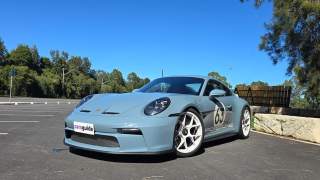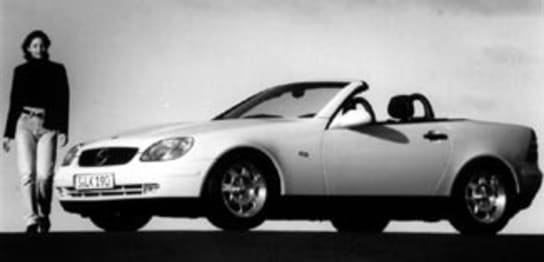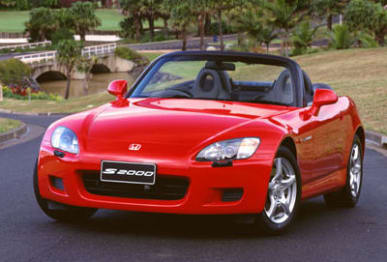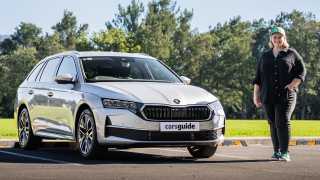
Used Mercedes-Benz SLK 200 review: 1997-2000
- Mercedes SLK-Class
- Mercedes-Benz SLK 200
- Mercedes-Benz SLK-Class 1997
- Mercedes-Benz SLK-Class 1998
- Mercedes-Benz SLK-Class 1999
- Mercedes-Benz SLK-Class 2000
- Mercedes-Benz SLK200 1997
- Mercedes-Benz SLK200 1998
- Mercedes-Benz SLK200 1999
- Mercedes-Benz SLK200 2000
- Mercedes SLK-Class Reviews
- Mercedes-Benz SLK 200 Reviews
- Mercedes-Benz Reviews
- Mercedes-Benz Convertible Range
- Convertible
- Mercedes-Benz
- Used Car Reviews
- Prestige & Luxury Cars
- Buying tips

When we think of sports cars, we tend to think of small, light two-seaters high on performance but with few creature comforts. The image is very British, which can be explained by the dominance of British sports cars in the 1950s and 1960s. But many other brands, including Porsche and Mercedes-Benz, took a different path. Mercedes in particular was building sports cars on a much grander scale.
The British were achieving new levels of performance by using small, mildly tuned engines in lightweight chassis, but the Germans were using bigger, more powerful engines.
When a new wave of sports cars arrived in the late '90s, Mazda mostly followed the British tradition with the MX5, but Mercedes took its traditional path with the SLK. It was more sophisticated, with lots of creature comforts to make the experience more enjoyable for those not hooked on old-time sports cars.
Model watch
AT $98,500 the SLK slotted into the middle of the market. It wasn't cheap, but it wasn't the most expensive on the market either. Typically Mercedes, the SLK was packed with the latest technology. It had a clever steel roof that folded into the boot when you wanted to soak up the sun, but provided all the security and comfort of a coupe when raised.
The only downside was that it slashed the available boot space once it was lowered. It was best to travel light if you were touring in an SLK. Chunky was the best word to describe the SLK with its wedge shape and large flanks, but it was attractive whichever way you looked at it.
Inside it was a little cramped, but it was stylish. The seats were typically Benz, flat and broad, which meant most people would fit in them, but they didn't provide the best of support in the sports-car tradition. The trim was a dashing blend of bright colours, leather of course, and there was a touch of nostalgia with the classical instruments and retro alloy touches on the centre console.
At first there was just one engine, a supercharged 2.3-litre double overhead camshaft four-cylinder unit that pumped out 142kW at 5300 revs and 280Nm at 2500 revs. When stirred into action, the SLK230 was capable of accelerating from rest to 100 km/h in 7.6 seconds.
As with the engine, there was no choice when it came to transmissions – it was a five-speed auto. True, it could be shifted manually when you wanted to up the fun stakes, but it wasn't in the class of the Porsche Tiptronic, and a long way short of a real manual box.
Underneath was independent suspension front and rear, four-wheel discs with ABS, traction control and power steering. Inside there was standard airconditioning, power windows, power roof, remote central locking, immobiliser and dual airbags.
On the road the SLK behaved well. It handled nicely, rode comfortably and braked with assurance, but it was geared more to highway cruising rather than spirited driving down a winding country road.
A few months after the initial launch, Mercedes offered a slightly cheaper SLK200 model with a 100kW unblown 2.0-litre engine in place of the supercharged 2.3-litre unit.
In the shop
MERCEDES-BENZ cars generally stand the test of time, and with about 100,000km on average on the odometer, SLK models are still in their prime when it comes to service. Check for a service record because it's better to buy one that has been cared for by a Benz dealer or at least an acknowledged specialist.
Have it checked by a specialist who knows the make and model. Unlike some other sports cars, the SLK is unlikely to be used in motor sport, so they're not normally abused.
Owner's view
JANICE Hyndman has travelled 54,000km in her SLK230 and loves it, particularly on a sunny day when she can lower the roof. She loves the uncluttered, classical style, says it has sufficient power, and the boot is roomy enough for her needs.
She says it's comfortable for her, though her husband finds it a little cramped, particularly in the footwells. Apart from a window winder motor that needed replacing, Janice says her SLK has been very reliable.
Look for
- CLASSICAL styling
- GREAT folding steel roof
- COMFORTABLE ride
- SECURE handling
- GOOD performance
Rating
18/20 Good-looking droptop that makes a perfect cruiser on a sunny day.
Pricing
| Year | Price From | Price To |
|---|---|---|
| 2000 | $10,670 | $19,690 |
| 1999 | $10,890 | $16,830 |
| 1998 | $10,890 | $16,830 |
| 1997 | $10,890 | $16,830 |
Pricing guides
Range and Specs
| Vehicle | Specs | Price* | |
|---|---|---|---|
| SLK230 Kompressor | 2.3L, PULP, 5 SP AUTO | $12,650 – 16,830 | 1997 Mercedes-Benz SLK-Class 1997 SLK230 Kompressor Pricing and Specs |
| SLK200 | 2.0L, PULP, 5 SP AUTO | $10,890 – 14,850 | 1997 Mercedes-Benz SLK-Class 1997 SLK200 Pricing and Specs |
Other cars to consider
$8,499
Lowest price, based on 2 car listings in the last 6 months









